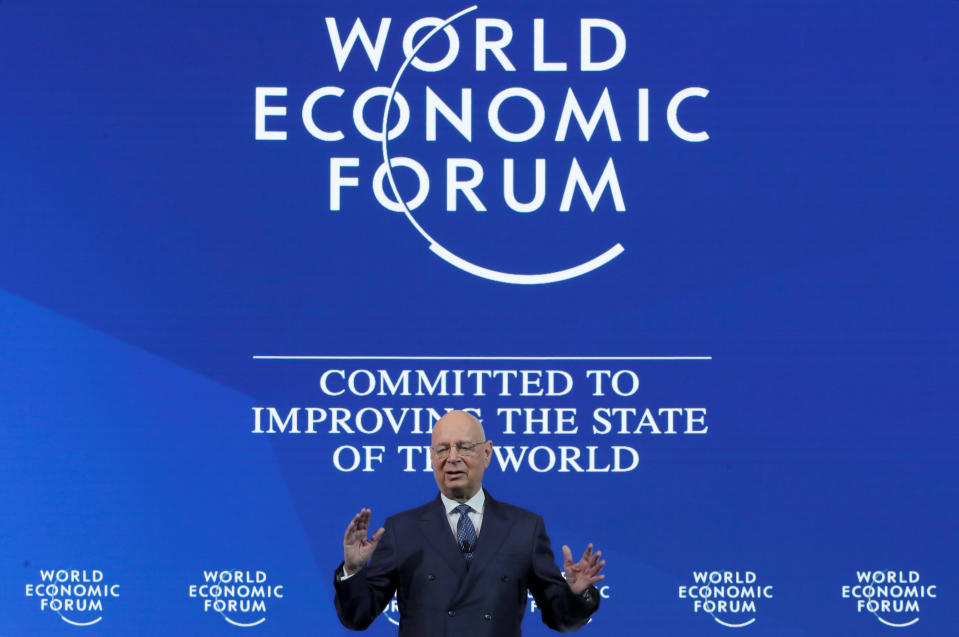Davos 2019: Founder warns of battle between robots and humankind

The founder of Davos has warned that the world faces a “battle between robots and humankind” in a stark message about the future of globalisation.
Klaus Schwab, the German economist and executive chairman of the World Economic Forum (WEF), said adapting to the huge pace of technological change should be a top priority for policymakers and businesses.
He also said the WEF had never stood for “unfettered globalisation”, in comments likely to raise eyebrows among critics of the Davos summit.
The official theme of the 2019 Davos summit is ‘Globalization 4.0: Shaping a Global Architecture in the Age of the Fourth Industrial Revolution.’
READ MORE: What is Davos? The 2019 World Economic Forum explained
In his opening remarks to the conference of political and business chiefs in Davos, Switzerland, Schwab said: “We feel Globalisation 4.0 has to be more human-centred.
“We are now in some ways in a battle between robots and humankind. We don’t want to become slaves of the new technology.”
He pointed to the rise of robots as just one of a series of challenges facing the world economy and supporters of globalisation.
He went on: “Globalisation also has to be more inclusive. Let’s not forget – multilateralism has helped to lift hundreds of millions out of poverty.
READ MORE: Alarming forecast for the global economy as Davos begins
“Today we cannot afford any more to leave people behind, in the age of social media and if we take our consciousness of social justice. We need a re-moralisation of globalisation – to create a values-based approach.
“Globalisation also has to become more sustainable. It’s why we have put so much emphasis on environmental issues this meeting.”
The professor, who founded the World Economic Forum in 1971, gave further details of his fears for globalisation’s future and the role of technology in a comment piece on the WEF website shortly before the summit began.
READ MORE: Ray Dalio says what he fears most right now
Schwab suggested it was vital to give workers the right skills to harness the power of technology, rather than be displaced by it.
He wrote: “The new economy has already disrupted and recombined countless industries, and dislocated millions of workers.
“The unprecedented pace of technological change means that our systems of health, transportation, communication, production, distribution, and energy — just to name a few — will be completely transformed.

“Managing that change will require not just new frameworks for national and multinational cooperation, but also a new model of education, complete with targeted programs for teaching workers new skills.
“With advances in robotics and artificial intelligence in the context of aging societies, we will have to move from a narrative of production and consumption toward one of sharing and caring.”
Schwab’s claims about globalisation may face scepticism from campaigners and critics of the WEF.
For some the summit has become associated with the perceived failures of globalisation, including the wealth and power it has handed a global elite.
A report released by UK aid charity Oxfam in the run-up to the event suggested the richest 26 people on the planet have as much wealth as the poorest half of the global population.

 Yahoo Finance
Yahoo Finance 